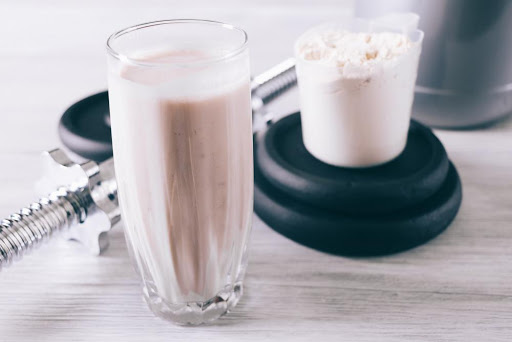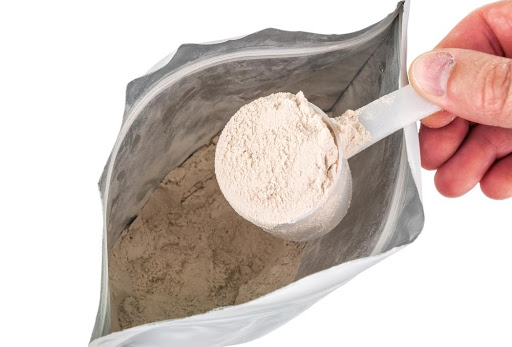
Meal Replacement Shakes and Digestive Enzymes

What are Supplemental Digestive Enzymes?
Your body makes digestive enzymes that enhance digestion, however, due to age or other health conditions such as genetic enzyme insufficiency or food intolerances, endogenous enzymes may not be enough. This is why supplementing your diet with supplemental digestive enzymes is important and, in some cases, necessary.
Different digestive enzymes are used for different functions within the body. Lipases break down fat, proteases and peptidases break down proteins, and amylase breaks down carbohydrates. Being deficient in any or all of the different enzymes significantly hinders digestion, leading to unpleasant symptoms of gas, bloating or diarrhea.
If you’re deficient in the enzyme lactase, for example, you’ll have trouble digesting lactose found in milk-based products and may experience the unpleasant symptoms of lactose intolerance such as gas, diarrhea, or abdominal pain. Supplemental lactase can help prevent the discomforts and also retrieve the valuable nutrients of milk-based products.
Who are Meal Replacement Shakes and Digestive Enzymes Most Useful For?
 Many health and nutrition shakes are designed to provide all essential nutrients your body requires, especially for people who are older, frail, underweight or recovering from an illness or surgery. Doctors may recommend nutrition shakes as meal replacements for weight loss patients as well, as many meal replacements contain fewer calories than eating a full meal.
Many health and nutrition shakes are designed to provide all essential nutrients your body requires, especially for people who are older, frail, underweight or recovering from an illness or surgery. Doctors may recommend nutrition shakes as meal replacements for weight loss patients as well, as many meal replacements contain fewer calories than eating a full meal.
The elderly or other people with compromised immune systems reap numerous health and wellness benefits from drinking meal replacement shakes containing digestive enzymes. This is because it can be difficult to take in the calories and nutrients older adults need to maximize health, and keep their immune systems strong enough to fight illness and disease.
Older adults may have difficulty chewing or eating a well-balanced diet due to other reasons (lack of cooking space or a physical disability that makes meal preparation difficult). Meal replacement shakes help older adults get key essential nutrients–such as protein, carbohydrates, healthy fat, vitamins and minerals. However, with aging comes a pancreas that doesn’t produce enzymes the way it used to, which is why supplemental enzymes become more important for the elderly population. With the addition of digestive enzymes, these nutrients are better absorbed and utilized by the body.
The elderly population isn’t the only group who benefits from supplements containing digestive enzymes. Digestive enzymes are needed to supplement natural enzyme production in people who don’t produce these enzymes naturally. This could be due to older age but also to pancreatic cancer, cystic fibrosis, chronic pancreatitis or other digestive conditions.
Patients with inflammatory bowel disease and irritable bowel syndrome who took digestive enzyme supplements experienced less abdominal pain and bloating, reduced flatulence and an improvement in overall well-being after a four-week treatment session, according to a 2017 study published in European Review for Medical and Pharmacological Sciences.
Consumers with health conditions, however, should check in with a doctor before taking any form of dietary supplement.
What Are the Benefits of Adding Digestive Enzymes to Meal Replacement Shakes?
 Numerous health benefits exist for consumers and manufacturers when adding digestive enzymes to dietary supplements. Better digestion and improved nutrient absorption are just two examples. Less bloating, heartburn, flatulence, and improved gut health, are other health perks customers can come to expect.
Numerous health benefits exist for consumers and manufacturers when adding digestive enzymes to dietary supplements. Better digestion and improved nutrient absorption are just two examples. Less bloating, heartburn, flatulence, and improved gut health, are other health perks customers can come to expect.
A healthier gut means better overall health and wellness. Believe it or not, having a healthy gut aids in better overall brain health. Microbial imbalance and gut inflammation are linked with depression, anxiety and several other mental illnesses, according to a 2017 study published in Clinics and Practice. Research is ongoing, but maintaining a healthy digestive tract may be more beneficial for consumers than once thought.
In addition to gut and brain health, supplemental digestive enzymes also appear to aid in healing and pain management. While more research is needed in this realm, the University of Michigan found that supplementing with certain digestive enzymes may improve low back pain and pain associated with pancreatitis–and aid in healing of strains and sprains–due to the anti-inflammatory properties of digestive enzymes.
Manufacturers Benefit from Adding Digestive Enzymes to Products
Digestive enzymes are in high demand among consumers, which is why manufacturers who add enzymes to products boost credibility and reap financial rewards. For example, Harvard Health Publishing says digestive enzyme supplement sales may reach $1.6 billion by the year 2025, which benefits manufacturers’ bottom lines.
Learn more about Prohydroxy P and how this product can improve your meal replacement shake formula.




